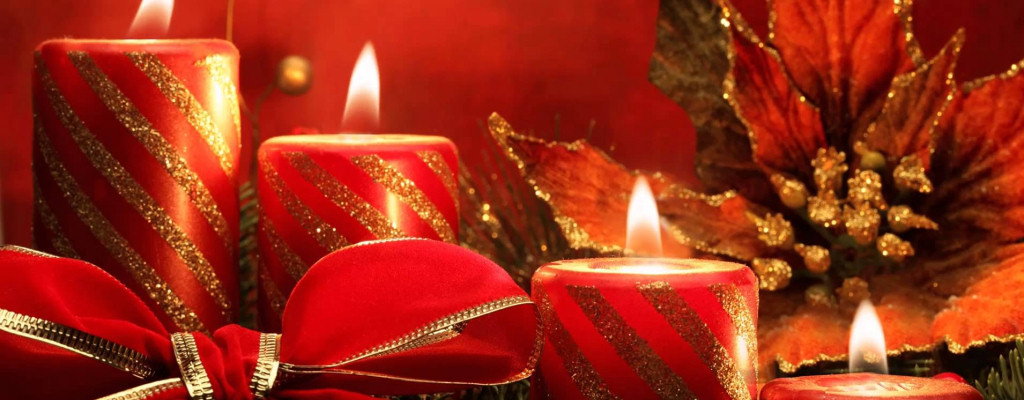We all share fond memories of the holiday season – gorging ourselves silly, watching sports on television, and laughing with friends and family. Unfortunately, many of us also have memories of holiday disasters, whether from a burst pipe, a home fire, a fallen tree, or worse.
Spend more time doing the holiday activities you enjoy and less time calling a home service company, or worse – emergency personnel! Here are some essential safety tips for the holiday season.
Fire extinguisher safety
Home cooking fires skyrocket during the Thanksgiving and Christmas holidays. Since you’ll most likely be cooking many things at the same time, it’s crucial to make your kitchen a child-free zone while you’re cooking and always be attentive when food is in the oven. Unattended cooking fires account for a large portion of holiday emergency calls.
Additionally, fire extinguishers are rated for different uses – make sure you have one handy that is appropriate for gas fires. If you opt for a multi-purpose or universal fire extinguisher, it should be able to combat any fire in your home.
Remember the PASS strategy when using a fire extinguisher:
- Pull the pin. Point the nozzle away from you, and release the locking mechanism.
- Aim low. Always point the extinguisher at the base of the fire.
- Squeeze the lever evenly and slowly.
- Sweep the nozzle in a steady, side-to-side motion.
Additional fire extinguisher safety tips:
- Always read and follow the instructions on your fire extinguisher, and learn how to use it before an emergency occurs.
- Using a fire extinguisher should never be your only safety response.
- Call the fire department. A small fire can become a blaze in a hurry.
- Only use an extinguisher when everyone has evacuated the area, and the fire is confined to a small area.
- The best way to ensure everyone’s safety in a dangerous fire situation is to have a home fire escape plan in place and checking that you have working smoke detectors (you should test every unit every 30 days).
- Ideally, you should store a fire extinguisher near an exit and always have your back to an open exit when combating a fire. If smoke begins to fill the room, you’ll have a quick and easy escape route.
Candle safety
We get it – candles are a heartwarming part of the holidays. If you have an artificial Christmas tree, or just want to fill your home with the smell of freshly baked cookies without spending hours baking, candles might be your best bet for creating the ambiance you desire.
Sadly, though, candle fires are quite common, causing around 10,000 home fires and 150 deaths every year, mostly during the holidays. Always remember that candles are open flames – anything combustible that is too close to a candle can and will burn. Here are some candle safety best practices:
- If you’re using a candle in your bedroom, blow the candle out before you leave the room. Even if you’re just going to the bathroom, blow the candles out. You never know if you’ll get distracted and end up forgetting the candles are still alight. It’s best to avoid burning candles where people sleep, like the bedroom. Most candle fires start in a bedroom, and waking up to find your house on fire is no way to spend the holiday.
- Use candle holders, making sure the candle is on a stable surface and won’t tip over.
- Make sure your candle is at least one foot away from anything that could burn – this includes clothing, draperies, tablecloths, plants, and anything else combustible.
- Never place candles close to the edge of anything, where they can be knocked over easily.
- Avoid placing candles where hair, loose clothing, or other flammable items may be nearby. These create a perfect storm for a candle fire emergency.
- Avoid burning a candle all the way to the end. If it’s close to done, it’s time to put it out. Otherwise, you run the risk of the burning wick coming into contact with the surface below and starting a fire.
- Don’t use candles if supplemental oxygen is used in the home.
- Consider using battery-operated flameless candles instead. There are many realistic-looking models on the market right now that provide the desired ambiance without the fire risk.
Christmas tree safety
People tend to buy a Christmas tree around the end of November or beginning of December. With proper care, you can expect a real tree to look and smell great for around six weeks or so. Here are some Christmas tree tips to prevent problems:
- Get a fresh tree. You can test a tree’s freshness by trying to pull out some needles. If it’s fresh, they should be difficult to pull. A sticky trunk also indicates that a tree is freshly cut. Remember that once a tree dries out, it becomes a fire hazard.
- Cut around 1-2 inches off the bottom of the tree. Don’t cut at a slant – instead, cut an even line. Drilling a hole in the center of the trunk is unnecessary and won’t help water absorption.
- Place tree into a reservoir stand. As a general rule, use 1 quart of water per inch of trunk diameter. Check the stand daily and refill as necessary. There are also products that gauge the reservoir’s water level and automatically keep it adequately filled.
- Place your tree far away from all heat sources, especially the fireplace. Keep your tree away from central air vents as well, as this will accelerate the drying process. Instead, choose a corner of the room with an outlet nearby so that no cords are running where they can be tripped over.
- If you’re purchasing an artificial tree, make sure it is fire resistant.
- Always inspect your electrical ornaments and lights before using them, and only use electrical equipment that has been tested by an independent laboratory, such as Underwriters Laboratory (UL).
Space heater safety
As temperatures drop, home fires rise. This is due in large part to space heaters and careless space heater use. According to the National Fire Protection Association (NFPA), space heaters were involved in 32% of home heating fires, but in a whopping 79% of home heating fire deaths. Heating equipment continues to be one of the top causes of home fires, second only to cooking.
- Only use a space heater that has been tested by an independent testing laboratory.
- If your space heater or its cord show signs of damage, replace the unit immediately.
- Always follow the manufacturer’s instructions and recommendations.
- Plug space heaters directly into an outlet. Do not use an extension cord, as they often use a gauge of wire that isn’t rated for the level of current a space heater uses. This can overheat the extension cord and potentially start a fire.
- Turn off your space heater before going to bed or leaving the room.
- Only use space heaters as supplemental heat. Never use them to dry clothing, warm your bedding, or heat your entire home.


Comments are closed